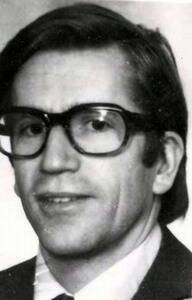| Collège Saint-Grégoire | Club Sportif de Jamhour | |
|

When the Lebanese war started in the spring of 1975, sectarian fanaticism surfaced. People grew away from one another and protected themselves behind the frontiers of their areas. The fear of the other was filling the hearts.
However, the Society of Jesus did not accept this fait accompli, for its founder had recommended to always go beyond the frontiers towards foreigners and the people who were far away and to give hope when people were hopeless. The Society relied on its Nazarene master who said, “I am with you always, until the end of age”[2].
The Saint Joseph University soon opened branches outside the capital, in areas where the majority of the citizens were not Christians, on the one hand to facilitate the commuting of its students, and on the other hand to confirm its wish to maintain communication between Lebanese of all rites.
In December 1976, it
decided to build branches in
The creation of these
branches and institutes was adventurous, but since they were built on faith,
they lasted. Some of them were soaked by the blood of martyrdom, and therefore
grew and became prosperous, as in the case of the
In 1985, while a large
part of the South was suffering from the Israeli invasion, Father André Masse
was nominated as the new director for the
He went to
Father Masse succeeded in many activities that he quickly achieved, such as the renovation of the Center, the introduction of computers in its annexes, the addition of more books to the library, the revival of the students’ house, the set up of a new sports field… Yet, his biggest success was the unification of the hearts and the emission of love and optimism in the souls through his martyrdom.
One day in September
1987, two young men asked to meet the Director. As soon as Father Masse came to
see them, one of the men shot several bullets at him, three of which went into
his head, and then he ran away with his friend. The reason for this crime was
never discovered, and perhaps it will never be! However everybody in
1) “I knew in him the
director, the colleague, the father, the brother and the teacher. He came to us
with a heart open to love, the love of everyone. He gave us all his energy. He
gave our South and our
2) One of the Muslim teachers wrote, “The murder of a person for his nationality, religion or opinion (…) expresses the tyranny of the law of the jungle and the loss of the human mind (…). When you met Father Masse, even if superficially, you saw in him the human model for the civilized and intellectual donation and personal sacrifice. A man like him inspires us to commit spiritually, to give and to devote ourselves for mankind”.
3) The last extract was written by his closest assistant who is also a Muslim teacher. He wrote, “He came to teach us, the Lebanese who snap at one another without knowing why, that the world is large, that the world is composed of different elements, that the world is based on sharing, and that men are brothers. In spite of all the love he had in him, there was a hand that killed him (…). It is not enough to condemn in words the murder of Father André Masse, for the true response should come in acts. We should pursue his work and mission. Each one of us should spread around him/her a little bit of love so that it increases and perhaps there will no longer be such crimes”.